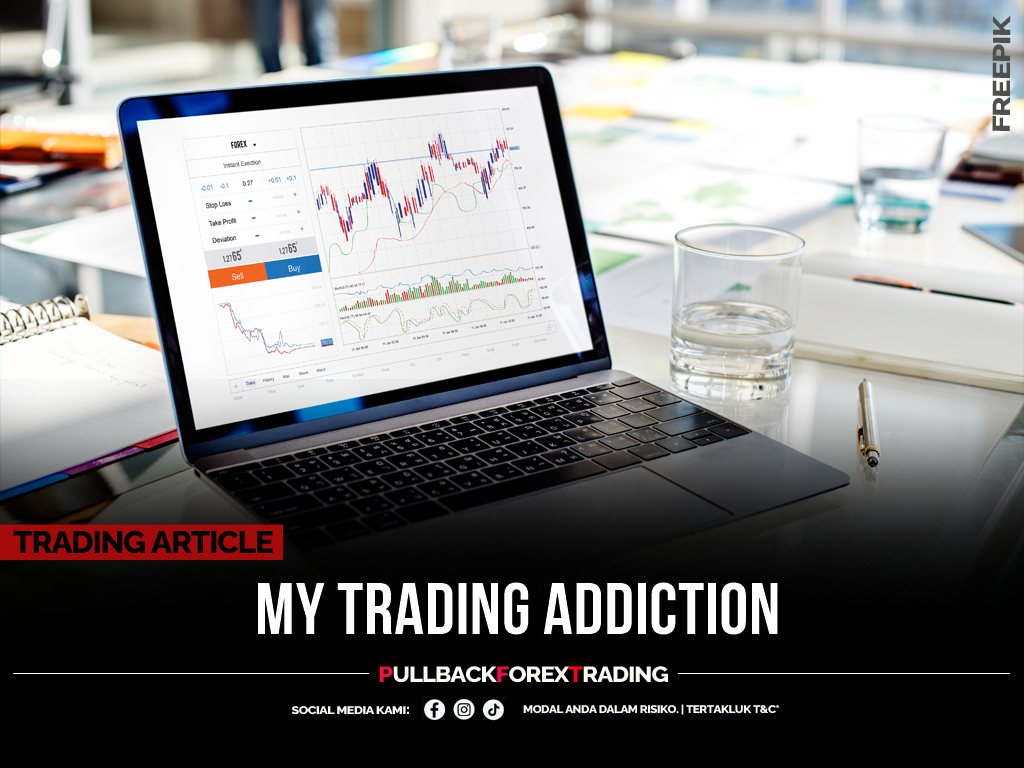
I Was Always in a Trade — Even When I Shouldn’t Be
Always in a Trade? I Was Too — And it almost destroyed my trading career! There was a time when I couldn’t sit still. I was addicted to entry always and always. That one day, I remember I opened my MT4(not even try to know what day it is) and try to enter a trade. Suddenly no entry can be made. I was panicked! Then I checked my calendar. Actually it’s weekend. LOL!
In my early life in trading I was like you, googling technique after technique, follow anyone in facebook that claim to be good trader, backtest any new technique I learned, download so many ebook, watching free video on youtube, and then trade the technique it like there was no tomorrow. It was in addiction, just it’s not drugs though. It’s trading. hahaha…
If I wasn’t…
If I wasn’t in a trade, I felt anxious.
It didn’t matter if there was a setup or not — I just had to be in the market.
It wasn’t about strategy anymore.
It became something worse:
I was addicted to trading.
I feared missing out more than I feared losing money.
The Silent Danger of Overtrading
Let’s call it what it is:
Overtrading is a psychological trap. And for me, it didn’t start with greed — it started with boredom and FOMO (fear of missing out).
Every little market move looked like an opportunity.
Every small candle looked like a signal.
And every day, I felt like I needed to “do something.”
So I traded.
And traded.
And traded…
My Daily Routine Looked Like This:
- Wake up on bed, open charts immediately.
- Take a trade just to feel “productive.”
- Watch the price move randomly — with no plan.
- Take another trade to “make back” a small loss.
- Stay in front of the screen for hours.
- End the day mentally exhausted and usually in drawdown.
I convinced myself I was hustling.
But in truth, I was gambling with a strategy mask.
When I Realized It Was an Addiction
The breaking point came when I reviewed my trading journal.
Out of 20 trades in a week, only 2 followed my actual system.
The rest? Pure emotion, boredom, or impulse.
That’s when I asked myself:
“Why am I doing this?
Do I want excitement — or do I want results?”
It hit me hard:
I feared being out of the market more than I feared losing money.
And that mindset was killing my capital, confidence, and consistency
How I Stopped Overtrading
Here’s what helped me regain control:
1. Create a Strict Trading Plan
Only trade when all criteria are met — no exceptions. If there’s no setup, there’s no trade.
2. Set a Trade Limit Per Week
I now allow myself a maximum of 2–4 trades per week. Quality > quantity.
3. Schedule “No Trading” Days
Yes — I literally force myself not to trade on certain days to reset my focus.
4. Replace Screen Time With Strategy Time
Instead of watching price tick by tick, I spend time reviewing past setups, journaling, and improving my edge.
5. Remember: Doing Nothing Is a Strategy
Staying out of the market is a decision — and often the most profitable one.
Final Thoughts: The Market Isn’t Going Anywhere
If you feel like you always need to be in a trade — pause.
Ask yourself:
“Am I trading with purpose, or just feeding an urge?”
Because real traders don’t chase action.
They wait patiently for high-probability setups.
They treat trading like a business — not a casino.
And if you want to survive and thrive in this game, you must learn to be comfortable with not trading.
ADMIN
20/08/25
PS: Email us at admin@pullbackforextrading.com if you have any confession you want to share with us. Selected article will be posted. Thanks.



